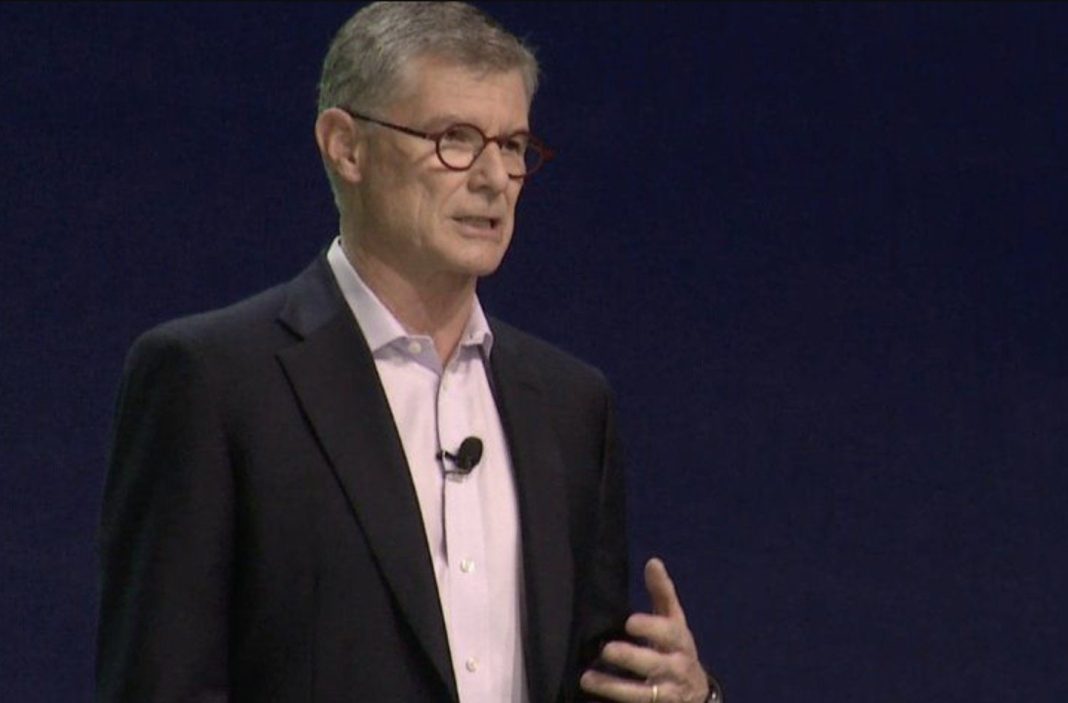Barry McCarthy, the former Spotify CFO who led connected fitness company Peloton through difficult times post-pandemic, is selling USD $10 million worth of Spotify shares.
That’s according to an SEC filing on Wednesday (June 5), showing that McCarthy – who is currently serving as a director on Spotify’s board – is selling 30,750 common shares of Spotify.
That amounts to less than a tenth of McCarthy’s holdings in Spotify. According to the company’s 2023 annual report, McCarthy held 381,797 shares of Spotify as of December 31, 2023, along with 15,033 stock options.


McCarthy continues to sit as a director on Spotify’s board, a position he took up in January 2020, about the time he departed as Spotify’s chief financial officer.
He stepped down as CEO of Peloton this past May, on the same day the company announced another round of cost reductions, including layoffs affecting 15% of its workforce, or 400 people.
Along with such names as Wayfair and Zoom, Peloton has become a poster child for businesses whose fortunes soared during the Covid-19 pandemic, and then fell to earth when consumers’ habits returned to normal post-pandemic.
Peloton, which was worth $8 billion at the time of its IPO in 2019, surged as pandemic lockdowns shut down gyms and consumers began snapping up the company’s exercycles and treadmills. But as the pandemic receded, so did Peloton’s fortunes.
The company’s stock price peaked in December 2020 at above $160 per share, and has since declined more than 97%, trading at around $3.80 as of Thursday (June 6). Its market cap has declined from heights above $50 billion, to around $1.4 billion.
McCarthy was brought on board half-way through that decline, in February 2022, lured out of retirement to replace founder and then-CEO John Foley with a pay package reported to be worth as much as $168 million.
However, nearly all of that came in the form of 8 million stock options, which McCarthy would not be able to exercise until the company’s share price hit $38.77 – something that hasn’t happened since his turn as CEO began.
He was initially given an annual salary of $357,692, though that was quickly bumped up to $1 million.
As CFO at Spotify, McCarthy developed a reputation as one of the streaming service’s staunchest and loudest defenders of its business strategy focusing on growth instead of profitability.
“You should expect us to continue to invest in growth at the expense of operating profit, because we believe that growth increases our enterprise value,” he said during a presentation in 2018.
Arguing that “scale can be a great enabler of margin expansion,” McCarthy argued that building up Spotify’s subscriber base, including the ad-supported subscriber base, formed the long-term path to Spotify’s profitability.
“The ad-supported business is also a subsidy program that offsets the cost of new subscriber acquisition,” he said, adding that “over time, more than one in every two free users will become a paying subscriber.”
McCarthy was CFO in 2017 when Spotify achieved something almost unthinkable today: It convinced the three major recording companies – Sony, Universal and Warner – as well as Merlin to help it grow its struggling gross margin by taking a smaller share of Spotify’s net revenue.
“That wasn’t a magic trick,” McCarthy explained. “The labels were acting in their own self-interest to shore up Spotify’s economically-challenged margin structure, because of the growing importance of a healthy Spotify to the entire music industry ecosystem”.
Today, that scale-over-profitability strategy is changing at Spotify – though arguably only once McCarthy’s strategy had largely succeeded. In Q1 of this year, with a paid subscriber base of 239 million and 615 million monthly active users, the company clocked its largest-ever quarterly profit, and appears finally to be on the road to annual profitability.
On earnings calls, CEO Daniel Ek has signaled that Spotify has shifted towards a focus on profitability. To that end, the company has implemented efficiencies, including multiple rounds of layoffs over the past few years.
However, another cost-cutting measure has raised the ire of the music business: Spotify’s decision to classify its Premium subscriptions in the US as “bundles” with audiobooks means it’s paying out less in mechanical royalties to songwriters and publishers, a move that has resulted in The Mechanical Licensing Collective (The MLC) launching a lawsuit against the streaming service.Music Business Worldwide


